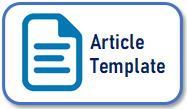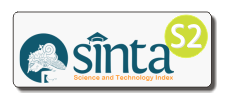A Comparative Analysis on Economic Roles of Government and Principles of Taxation between Public Economics and Siyasah Shar‘iyyah
DOI:
https://doi.org/10.14421/grieb.2023.112-02Keywords:
Public Economics, Siyasah Shar'iyyah, Government Behavior, Taxation, Public Finance, Islamic EconomicsAbstract
This research is an exploratory study on the similarities and differences of the justifications, objectives, roles of government and principles of taxation between public economics and siyasah shar‘iyyah. It aims to contribute towards integration of knowledge between modern economic theories and Islamic heritage in public economics. Despite similar focus on governance and social welfare, there is a lack of comparative study between public economics and siyasah shar‘iyyah in the literature. The research utilizes qualitative analysis on relevant textual materials on public economics and siyasah shar‘iyyah to identify and compare the major themes in terms of arguments for the establishment of a government, its economic objectives and roles, and taxation principles. The establishment of a government in public economics is based on the need to balance between efficiency and equity, address market failures, and provide public goods. Siyasah shari‘iyyah argues for a government based on fulfilling maqasid shari‘ah, uphold justice, and protect the rights of people. The principles of taxation in public economics often emphasize efficiency, equity, revenue sufficiency, neutrality, and administrative feasibility. In contrast, the principles of taxation in siyasah shar‘iyyah prioritize justice, prohibition of exploitation, funding public services, transparency and accountability, and wealth distribution in accordance with Islamic values.
Originality/Value: The advancement of Islamic economics requires the integration of modern economic knowledge with divine revelation. Since public economics is a specialized subfield within economics, the integration efforts with siyasah shar‘iyyah have been notably deficient. This study aims to address this gap by undertaking a comparative analysis of fundamental principles and objectives between public economics and siyasah shar’iyyah.
References
Abu, Yusuf Ya‘qub ibn Ibrahim. (1979). Kitab al-kharaj. Dar Al-Ma‘rifah.
Adinugraha, H. H. (2018). The rationalization of Abu Yusuf economic thought (An analysis of the Islamic public finances). Journal of Islamic Banking and Finance, 35(4), 39-53.
Al-Dumaiji, A. U. S. (2013). Al-Imamah al-‘uzma ‘inda ahl al-sunnah wa al-jama‘ah. Tabah Media Inc.
Al-Ghazali, A. H. M. I. M. (2004). Al-iqtisad fi al-i‘tiqad. Dar Al-Kutub Al-‘Ilmiyyah.
Al-Mawardi, A. A. A. I. M. (2006). Al-ahkam al-sultaniyyah. Dar Al-Hadith.
Al-Qurtubi, M. I. A. I. A. B. (2006). Al-jami‘li ahkam al-quran. Resalah Publishers.
Al-Raysuni, A. (2007). Nazariyyat al-maqasid ‘inda al-imam al-shatibi. International Institute of Islamic Thought.
Ariffin, M. I., & Tahir, I. N. (2022). Economic concepts and ideas of Al-Bukhārī: An analysis of the book of sales in Sahih Al-Bukhārī. The Journal of Muamalat and Islamic Finance Research, 19(1), 1-20.
Capasso, S., Cicatiello, L., Simone, E. D., Gaeta, G. L., & Mourão, P. R. (2021). Fiscal transparency and tax ethics: Does better information lead to greater compliance? Journal of Policy Modeling, 43(5), 1031-1050.
Diamond, P. A., & Mirrlees, J. A. (1971). Optimal taxation and public production II: Tax rules. The American Economic Review, 61(3), 261-278.
Diamond, P., & Saez, E. (2011). The case for a progressive tax: From basic research to policy recommendations. Journal of Economic Perspectives, 25(4), 165-190.
Ersoy, A., & Altundere, M. B. (2017). The market institution and the state in Islamic economics: From past to present and future. International Journal of Economics, Management and Accounting, 25(2), 253–284.
Groves, H. M. (1948). Neutrality in taxation. National Tax Journal, 1(1), 18-24.
Haneef, M. A., Arshad, M. N. M., & Mohameed, M. O. (2023). Foundations of Islamic economics. International Institute of Islamic Thought (IIIT) & IIUM Press.
Hindriks, J., & Myles, G. D. (2013). Intermediate public economics. Massachusetts Institute of Technology.
Hyman, D. (2021). Public finance: A contemporary application of theory to policy. Cengage Learning.
Ibrahim, A. (2019). The fundamentals of hisbah strategic in developing of human civilization. Academy of Entrepreneurship Journal, 25(1), 1-5.
Kahf, M. (1990). Financing the public sector in an Islamic perspective. In Z. Sattar (Ed.), Resource mobilization and investment in an Islamic economic framework (pp. 155-174). Association of Muslim Scientists and International Institute of Islamic Thought (IIIT).
Kamali, M. H. (1989). Siyasah shar‘iyah or the policies of Islamic government. The American Journal of Islamic Social Sciences, 6(1), 59-80.
Kayadibi, S. (2022). The state and policies of an Islamic government siyasah shar‘iyyah. International Institute of Islamic Thought (IIIT) & IIUM Press.
Malik, M. (2015). Good governance, civil socity & Islam. IIUM Press.
Maulidizen, A. (2019). Ibn Khaldun’s economic thought: The fair tax and its relevance to the modern economy. International Journal of Islamic Business and Economics, 3(2), 73-89.
Mawdudi, S. A. A. (2011). First principles of Islamic economics (K. Ahmad, Ed., & A. I. S. Hashemi, Trans.). The Islamic Foundation. (Original work published 1969).
Muhit, M., Janwari, Y., & Ridwan, A. H. (2023). The urgency of Abu Yusuf’s economic thoughts in the stretch of contemporary sharia economic law. Al-Afkar Journal for Islamic Studies, 6(3), 469-483.
Nozick, R. (1974). Anarchy, state and utopia. Basil Balckwell.
Taimiyyah, A. I. A. A. H. (2000). Al-siyasah al-shar‘iyyah fi islah al-ra‘i wa al-ra‘iyyah. Dar Al-Kotob Al-Ilmiyyah.
Taing, H. B., & Chang, Y. (2021). Determinants of tax compliance intention: Focus on the theory of planned behavior. International Journal of Public Administration, 44(1), 62-73.
Taufiq, I. (2015). Transparency and accountability in the Qur’an and its role in building good governance. International Journal of Business, Economics and Law, 6(4), 73-81.
Zaidan, A. K. (2003). Al-wajiz fi sharh al-qawa‘id al-fiqhiyyah fi al-shari‘ah al-islamiyyah. Resalah Publishers.
Downloads
Published
Issue
Section
License

This work is licensed under a Creative Commons Attribution-ShareAlike 4.0 International License.
Global Review of Islamic Economics and Business is licensed under a
Creative Commons Attribution-ShareAlike 4.0 International License



















